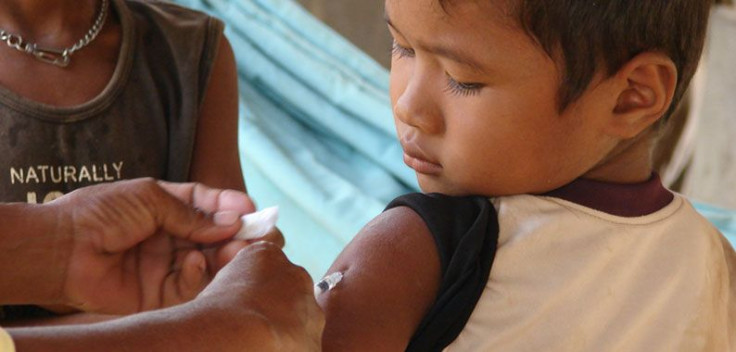Risk Of Stroke In Kids Increases With Minor Infections Like Colds And Flu; Vaccines May Help

Add another to the long list of reasons for properly vaccinating your children: It may reduce their (already small) chances of developing a stroke.
At least, that’s according to new research published Wednesday in the journal Neurology. The authors studied the medical records of 355 children under the age of 18 who had suffered a stroke, as well as interviewed their parents, specifically focusing on their vaccine and infection history. To serve as a control group, they also studied 354 similarly aged children who had never come down with a stroke.
18 percent of the stroke group had come down with a minor infection a week before their fateful stroke, while only 3 percent of the latter did. Similarly, 8 percent of children with stroke had a poor vaccination history compared to a singular 1 percent of the control group.
"Infection may act as a trigger for childhood arterial ischemic stroke, while routine vaccinations appear protective," they concluded. "Hence, efforts to reduce the spread of common infections might help prevent stroke in children."
As the authors caution, the increased risk, while tangibly seen, should be taken in the context of how unlikely the chances of suffering a stroke is for any child.
"Parents should be reassured that while the risk was increased, the overall risk of stroke among children is still extremely low," said study author Dr. José Biller, a professor at the Stritch School of Medicine at Loyola University in Chicago, in a statement. "It is possible that changes in the body as a result of these infections, such as inflammation and dehydration could tip the balance in a child who is already at a higher risk for stroke. Parents should not be alarmed if their child has a cold that it will lead to a stroke."
The boost in stroke risk appears to be short-lived as well, since there wasn’t any observable effects seen from infections that had occurred a month or six months beforehand.
Fellow co-author Dr. Heather J. Fullerton, of the UCSF Benioff Children's Hospital in San Francisco, noted that this study lends more credibility to the earlier findings that her research group had uncovered during a similar, if smaller and less extensive, study.
Given how inexpensive and practical public health measures like vaccination can be for everyone involved, it’s certainly worth exploring how else they might be able to incidentally benefit human health.
"If our results hold up in further studies, controlling infections like colds and flu through hand-washing and vaccines may be a strategy for preventing stroke in children," said Fullerton.
Source: Biller J, Hills N, Fullerton H, et al. Infection, vaccination, and childhood arterial ischemic stroke. Neurology. 2015



























